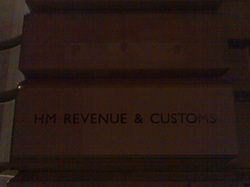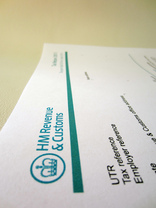|
HMRC is launching seven new investigation task forces. Who’s being targeted this time?
After launching nearly 40 task forces in the last two years HMRC hasn’t yet run out of steam and the latest batch are aimed at different industries as far apart as the Isles of Scilly and Scotland. The new task forces are aimed at the:
Other forces. In the early days we heard through the grapevine that some of HMRC’s task force officers weren’t well informed about the industry sectors they were investigating. That’s less likely to be the case now, plus they are increasingly getting other forces involved, like the police and the Home Office. The latter will check that you’re keeping the right paperwork for any foreign workers you employ Make the right first move. It’s easy for HMRC to say you have nothing to fear if you aren’t unfairly avoiding tax, but in our experience if it’s looking for trouble it might find it even where there isn’t any. Therefore, if you’re contacted by an HMRC task force we recommend speaking to your tax advisor immediately.
16 Comments
 This is a new HMRC Online system that will be introduced from April 2013. It will require employers to file their payroll details with HMRC every month/week before they are able to pay their staff. This means employers will no longer be able to give cash advances to staff which then later deduct from their wages. Currently employers only file a summary of this information once a year which has led to issues in recent years with individuals under or overpaying taxes due to incorrect tax codes. This new system will mean that the information held by HMRC should be up to date and hold accurate details of an individual’s earnings at any point during the year. HMRC claims that RTI will:
Payments and penalties Under the current system of annual filing HMRC are unable to tell if employers are paying the correct amounts of PAYE & National Insurance contributions throughout the year however the new monthly reporting system will enable them to check this. The penalty system was updated in 2010 in anticipation of the new RTI service and penalties will be imposed based on the number payment defaults on a percentage basis. The percentage penalties range from 1% for 2 to 4 defaults in the year to 4% for 10 or more. Employers paying 6 months late will incur a penalty of 5% with a further 5% charged if the payment is 12 months late. HMRC have said that they will issue warning letters for first and second defaults before penalties are issued so that employers are aware of the risk of incurring penalties. Payroll software Payroll software will need to be updated so that it can pass the information to HMRC. All payroll software developers will have accounted for this but you need to make sure you have got the necessary update. If you are not using payroll software you will need to use this going forward, however there is some free software provided by HMRC called Basic PAYE tools that is available for small employers. Alignment process There will be a payroll alignment process before each employer goes onto the RTI system so it is important to make sure you hold all the necessary employees details beforehand (name, address, National Insurance number and date of birth). Owner managed businesses We had been hoping there would be an exemption for owner manage businesses who currently only file an annual payroll return as they are paid below the limits for Income tax and National Insurance. As the deadline is fast approaching and nothing has been announced we have to assume that these businesses will now have to file a monthly payroll return under the new system. This is a big increase in form filling for small businesses when the government had pledged to reduce red tape for businesses. You may find this HMRC checklist useful http://www.hmrc.gov.uk/payerti/getting-started/business-readiness-checklist.pdf HMRC has issued around 850,000 late filing penalties for the tax year ended 5th april 2012 which was due by the 31st January 2013. Remember the penalties apply regardless of whether there is a tax liability or not, the cap of earlier years has been scrapped. Only one-fifth of small firms ready for Real Time Information, finds survey A record 9.61 million people filed and sent their self-assessment tax returns on time this year, with 7.93 million sent online, HMRC has revealed. Tax return deadlines are 31 October for paper returns and 31 January for electronic returns following the end of the tax year to 5th April. Businesses that are behind with their VAT returns have until 28 February to take advantage of HMRC's latest campaign, launched in January  The deadline for posting 2011/12 paper tax returns to HMRC before the 31 October deadline, is now just days away. Any paper tax returns received on, or after 1 November 2012, will result in a £100 penalty – even if there is no tax to pay or the tax due is paid on time. Anyone unable to submit a paper return by the end of the month, can avoid a late-filing penalty by sending their return online by 31 January. And for anyone sending a paper return close to the deadline, HMRC recommends taxpayers obtain proof of posting, as this provides evidence of your posting date in the event of any appeal against a late-filing penalty. If you are in doubt get in touch with us for helpful advice.  Taxpayers who have yet to file tax returns for 2009/10 have less than a week left to take advantage of reduced penalties for late returns. Under HMRC's tax return initiative, outstanding tax returns up to and including 2009/10, if submitted before 2 October 2012, will be subject to reduced penalties, even though new penalties for late tax returns have already come into effect. “Time is running out, so taxpayers with tax returns outstanding should act immediately if they wish to keep the weight in their wallet and off of their shoulders,” Baker Tilly said. Under the new rules a penalty of £100 is charged when a return is just a day late. When the return remains outstanding after 3 months, a daily penalty of £10 is levied for up to 90 days. When the return is 6 months late, the higher of £300 or 5% of the tax due is imposed and this penalty is then repeated if the return remains outstanding 12 months after the deadline. In serious cases, HMRC can charge penalties of up to 100% of the tax due for a return that is over a year late. These staggered penalties are automatic and cannot be mitigated without a “reasonable excuse”, such as a serious illness or a breakdown in HMRC’s computer system. Where late payment applies, further penalties equal to 5% of the tax due are levied 30 days and 6 months after the 31 January and 31 July payment deadlines. There is also interest to pay.  The taxman has been looking into allegations the company wrongly charged VAT on children's clothing which is usually exempt, dating back as far as 2006 Read more: |
AuthorLicenced Accountant in Brighton Archives
May 2020
Categories
All
|

 RSS Feed
RSS Feed
